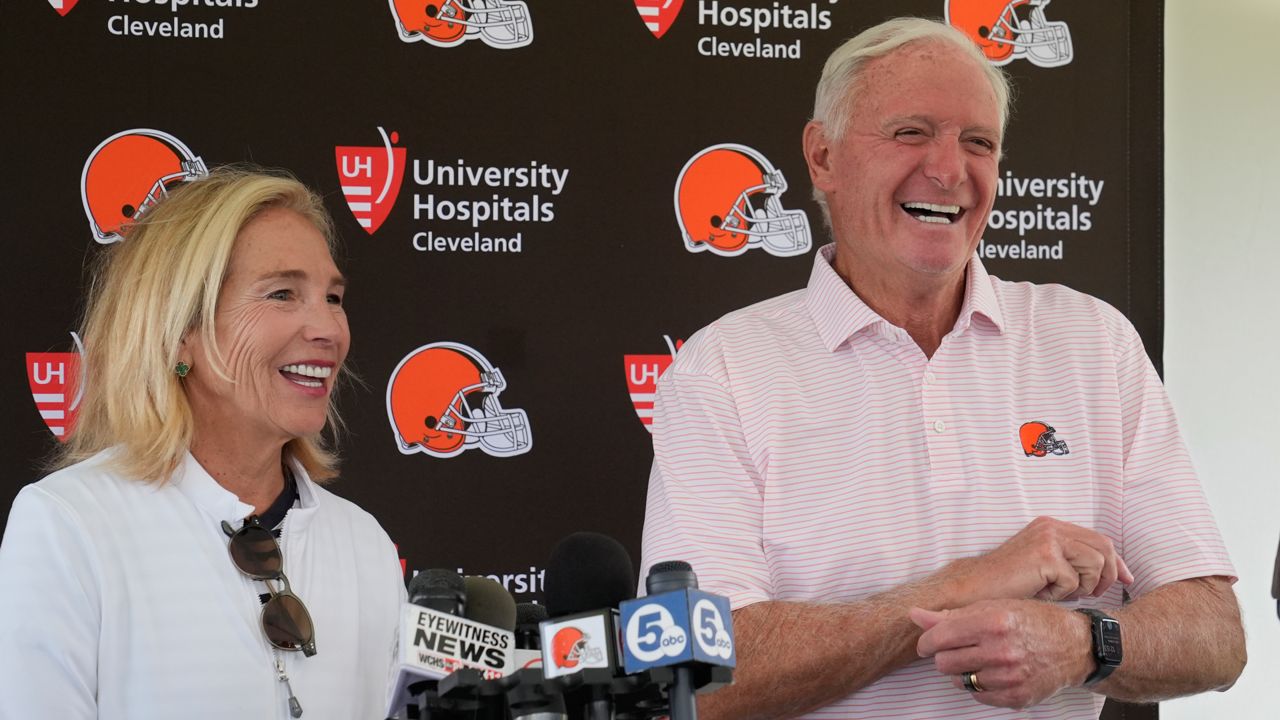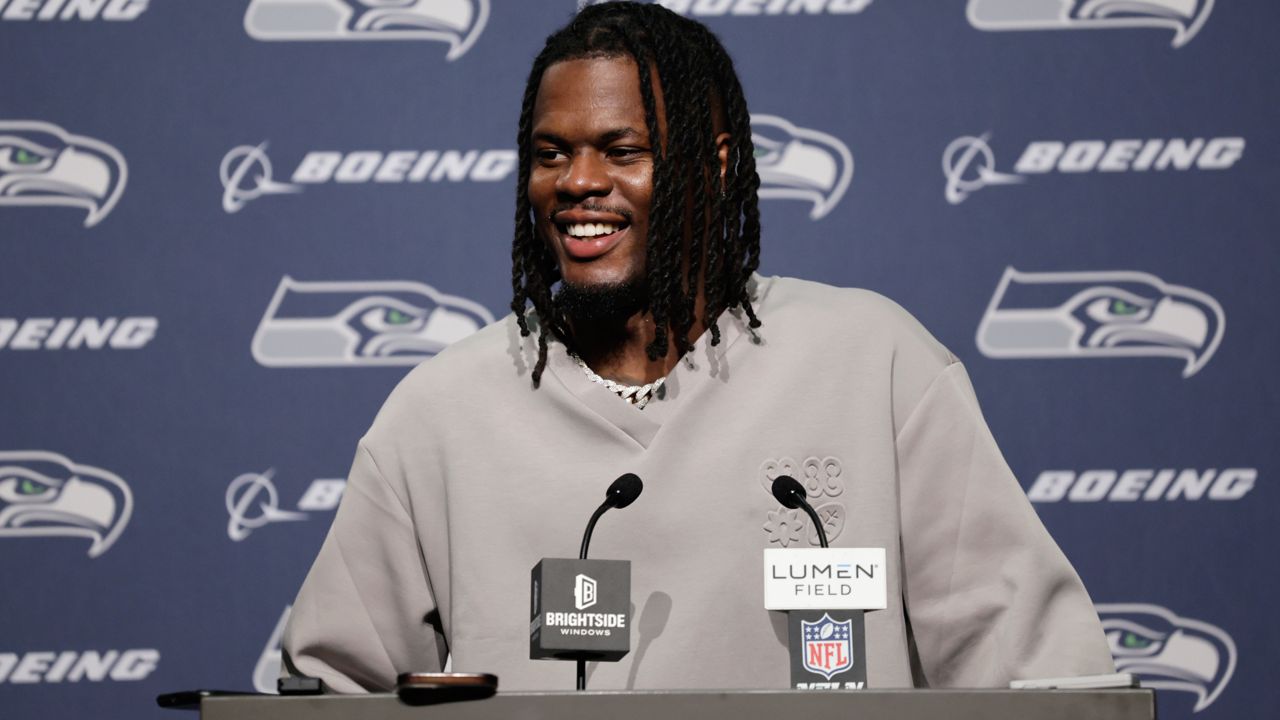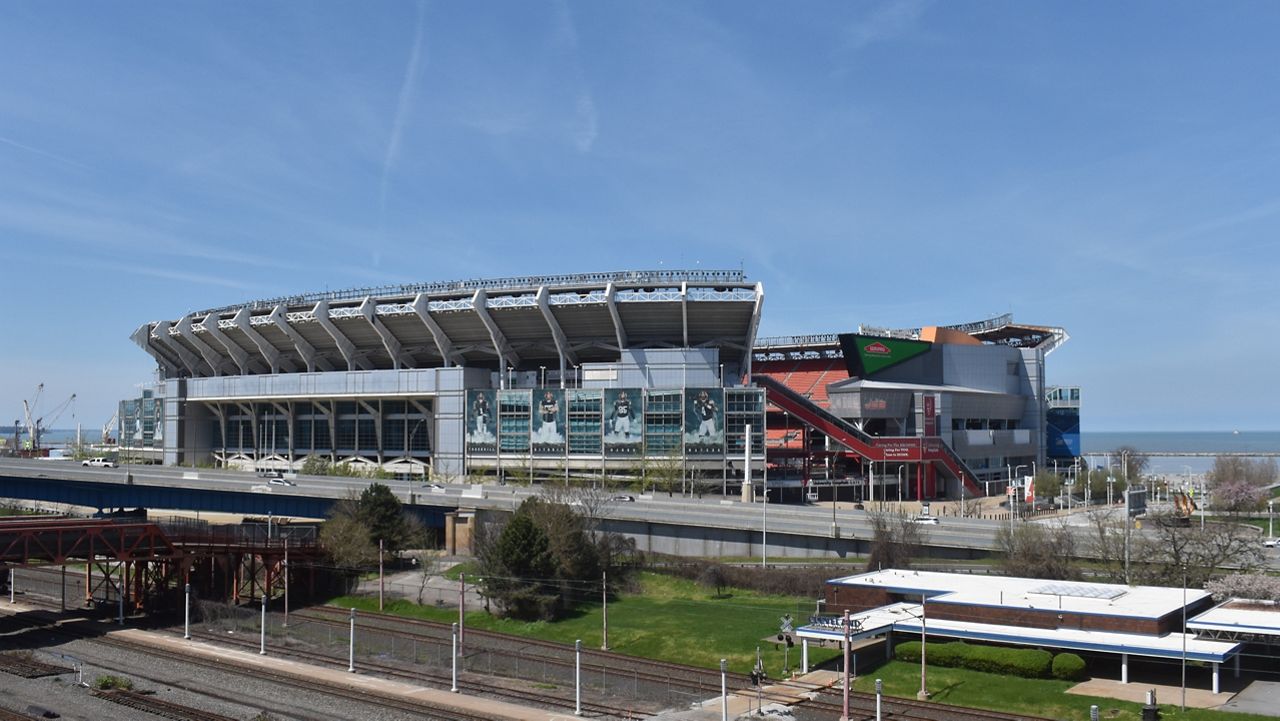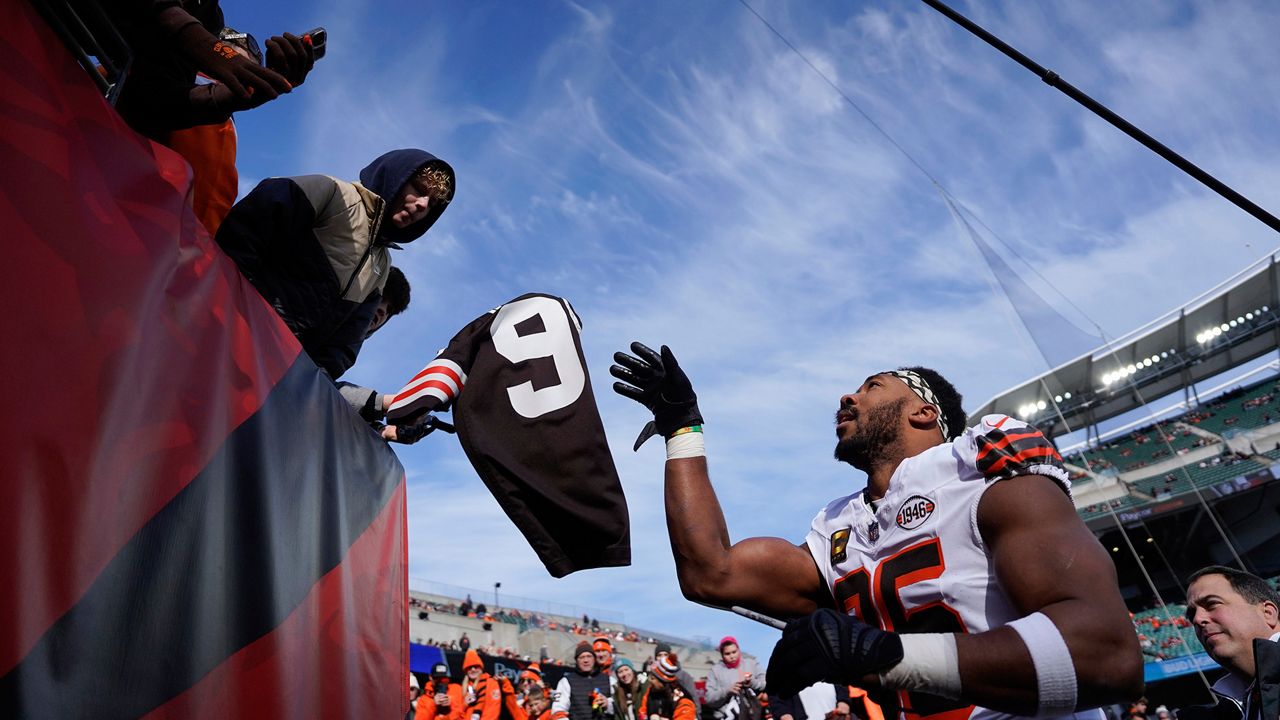CLEVELAND — Cleveland city officials filed a lawsuit against the Cleveland Browns as they continue to try to keep the NFL team playing in downtown Cleveland.
The lawsuit alleges that the team is violating state law and contract agreements with the city after accepting more than $350 million in taxpayer money. The law being violated is known as the Art Modell Law, enacted when the Browns' attempted to relocate to Baltimore in 1995, keeps team owners from exploiting public investment. The law also works to protect taxpayers from losing professional sports teams playing in publicly funded facilities.
The Art Modell Law applies to teams who play in taxpayer-supported facilities. Case Western Reserve University Law Professor Eric Chaffee said it has no precedent in court.
“This type of law has not been tested previously,” he said. “It's not been litigated in court, and as a result of that, there's a lot of uncertainty.”
The law requires teams playing in these facilities to secure city approval for relocation or provide a fair opportunity for others to purchase the team.
According to a news release from the city, The Haslam Sports Group, current owners of the Browns, "are attempting to circumvent the law through a hastily filed federal lawsuit aimed at evading compliance with the Modell Law, arguing it does not apply to their potential relocation plans."
The city said in its release that at the request of the Browns and the NFL taxpayers have spent hundreds of millions to support the team and build up the city's lakefront.
“When dollars leave Cleveland for any other place, that creates real concerns and meaningful concerns,” Chaffee said. “How does it alter the city? How does it alter the people who come there? How does it alter the businesses that exist there? Those are all really important questions.”
At the end of 2024, the Browns preemptively filed a lawsuit in federal court against the city — claiming the Modell Law is unconstitutional. Their complaint goes on to say the law doesn’t apply because they don’t intend to move until their lease agreement with the city is up. Chaffee said the Modell law’s language may prove to be beneficial for the Browns’ argument in court.
“It demands that there be this purchase, or this opportunity to purchase,” Chaffee said. “What does that mean? Does it mean that there's just simply, an offer to somebody that they can potentially purchase it? Does it have to be reasonable? Are there circumstances where an offer has to be accepted? All of those things are really open. As a result of that, probably in this matter, there's a bit stronger of a case, for the Browns and the Haslams.”
Chaffee said since there are now lawsuits filed in state and federal court, there will likely be a fight to determine where this case will play out. He said a state court would likely be more beneficial to the city, while a federal court could benefit the Browns.
“The Modell Law is clear: if you take taxpayer money to fund your stadium, you have obligations to the community that made that investment possible,” said Mark Griffin, law director and chief legal counsel for the City of Cleveland in a news release. “The Haslam Group’s circumvention of these requirements not only undermines the trust of Cleveland’s residents but also violates a law designed to protect all Ohioans.”
Griffin pointed out that the Haslams previously relied on the Modell Law to acquire the Columbus Crew soccer team.
"Their use of the law to secure the Crew underscores the importance of these protections for communities and taxpayers, making their current sidestepping of the Modell Law even more glaring," Griffin said.
The lawsuit was filed in Cuyahoga County Common Pleas Court to enforce Modell Law, alleging the Haslam Sports Group violated legal obligations by failing to notify or offer the city a chance to buy the team. The lawsuit said despite taxpayer investment in Huntington Bank Field a new stadium in Brook Park is still being pursued.
“The future of our lakefront and our city is brighter with the Cleveland Browns continuing to play football on the shores of Lake Erie, just as they have for generations,” Cleveland Mayor Justin Bibb said in the news release.











